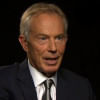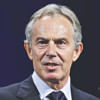“Do the right thing”. Really?!

MR. Tony Blair sent a personal note to President George W. Bush on July 28, 2002, a full eight months before the Iraq campaign with the opening lines "I will be with, whatever…", basically throwing in his full support behind an American-led invasion – were it to go ahead, which it did. The Iraq inquiry known as the Chilcot Report has made some damning remarks about Mr. Blair and his "right thing to do" policy that saw Britain riding side by side with the United States in its campaign that led to the invasion of Iraq.
With the unveiling of the report, we come face to face with the bare facts about the misinformation campaign that led to building up the case against Saddam's Iraq that set into motion events which culminated in that country's invasion. The occupation of Iraq effectively destroyed the secular nature of the country and resulted in US-led forces to be bogged down for the next 13 years in a war that was not won and blew the lid off the whole radical and extremist militant outfits which had been suppressed under Saddam's regime.
The report is interesting in the sense that there is no mention of holding anyone accountable. Hence, the recommendations mentioned are suggestions and there is no question of anyone facing any litigation. All very convenient because it means the Iraqi people who have had to put up with invasion that resulted in the deaths of 200 British, including 179 soldiers, at least 4,500 American and more than 150,000 Iraqis over the course of more than a decade cannot seek justice in a court of law. The Iraq misadventure, as it is called sometimes, was not a blame that rests on Mr. Blair's shoulders alone, but those in his inner circle share the blame equally. The intelligence presented for going to war with a nation purported to have "weapons of mass destruction" was sketchy at best and that a sitting prime minister was able to carry forward the case for aggression is deplorable.
The perceived threat posed by Iraq's strongman Saddam was effectively blown out of proportions and warmongering was let loose to persuade an unsuspecting nation to lend its tacit support to securing world peace – through invasion. Not all allies were duped of course. The French government under Jacques Chirac fought tooth and nail to stop it because they were not convinced of the "evidence" presented. With a UN veto likely from the French, a split amongst the allies did not deter the British from moving ahead with the Americans to launch the most ill-conceived attack on a country that never had any weapons of mass destruction. The build up to and the actual invasion of Iraq set forth events which have now become the world's problem.
As put by Carne, Ross (Executive Director of Independent Diplomat and Iraq expert in Britain's delegation to the UN from 1997- 2002) in a recent article: "A thug named Abu Musab al-Zarqawi, a marginal figure in Al Qaeda, was elevated in the jihadist hierarchy when Secretary of State Colin Powell, in his notorious prewar speech to the United Nations Security Council, falsely naming him as an ally of Saddam Hussein. As a result, Mr. Zarqawi gained status as America's declared enemy, an authority he exploited to become an extremist leader in the Sunni insurgency in Iraq. Breaking with Al Qaeda, he founded the group that became the Islamic State, which today occupies Iraq's second-largest city, Mosul, and vast stretch of territory across Iraq and Syria, and just this week killed more than 200 civilians in suicide bombings in Baghdad."
The Chilcot report is something that has been seven years in the making. And although outgoing PM Cameron has stated that the government will implement the recommendations, at the end of the day it is just another report. Mr. Blair may have taken "full responsibility" to lead his nation into the war, but does it absolve him of the immorality of the whole affair? The report in its entirety should be read by both the British people and anyone else interested because two major powers decided to opt for military actions based on faulty, or to put it more bluntly by some members of the British establishment, erroneous intelligence without fully exploring diplomatic or peaceful measures to resolve the crisis.
It is interesting that Mr. Blair has gone for full disclosure in a two-hour news conference where he took responsibility for intelligence failures and wrong steps, but remained resolute in the face of new information (as concluded in the report) that it was the right decision to go to war. As he stated "There will not be a day of my life where I do not relive and rethink what happened. People ask me why I spend so much time in the Middle East today. This is why. This is why I work on Middle East peace." Perhaps the death of hundreds of thousands of Iraqis in the aftermath of the invasion and the failure to find weapons of mass destruction (the primary reason that was touted as basis for the invasion in the first place) and the destruction of one of the cradles of civilisation would weigh on anyone's mind, even a former prime minister.
The writer is Assistant Editor, The Daily Star.

 For all latest news, follow The Daily Star's Google News channel.
For all latest news, follow The Daily Star's Google News channel. 







Comments